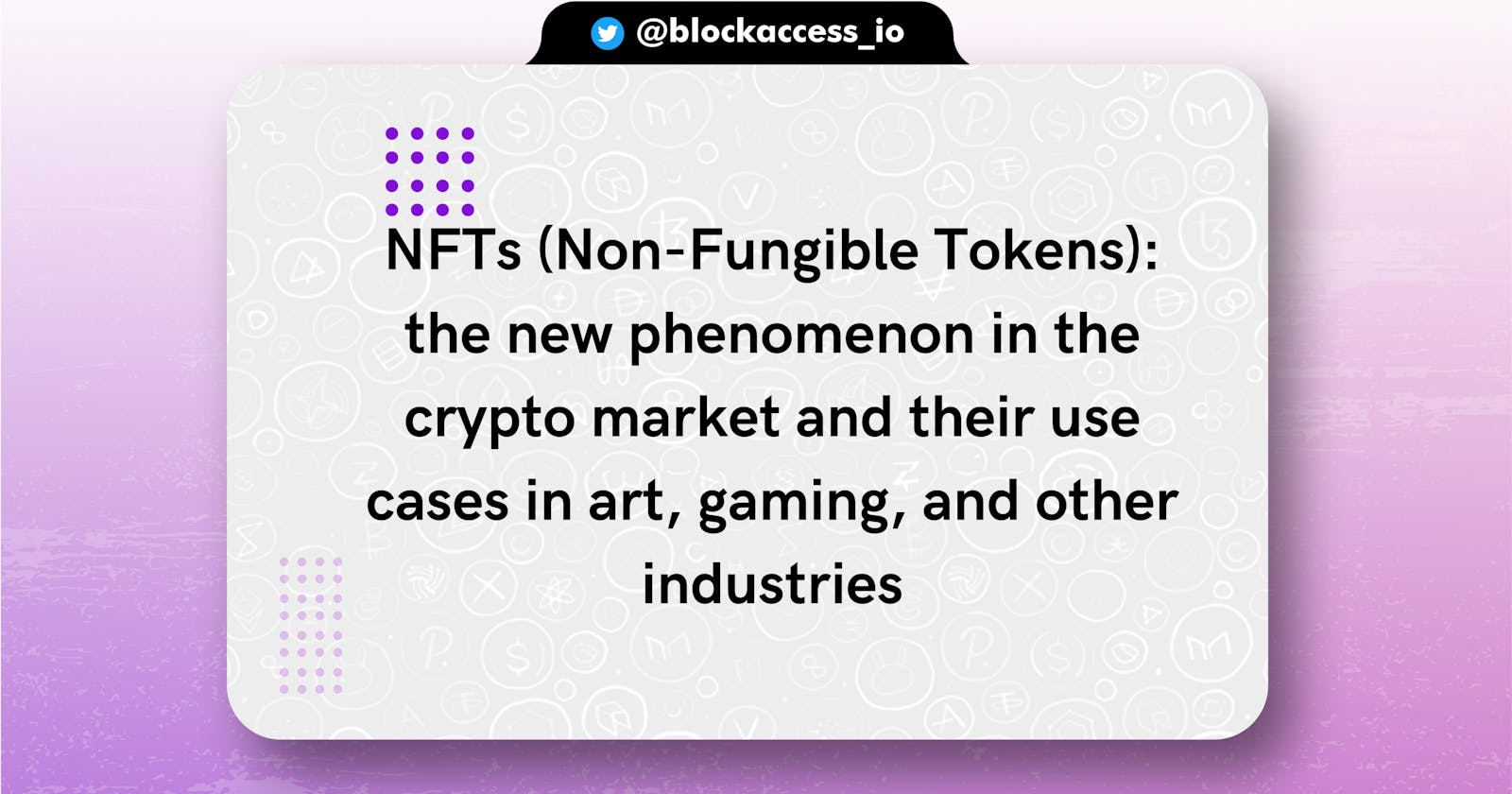NFTs (Non-Fungible Tokens): the new phenomenon in the crypto market and their use cases in art, gaming, and other industries
Non-Fungible Tokens, or NFTs, are a new type of digital asset that have gained popularity in the crypto market. Unlike cryptocurrencies such as Bitcoin or Ethereum, which are fungible, meaning they can be exchanged for another unit of the same cryptocurrency, NFTs are unique and cannot be exchanged for another identical NFT.
NFTs are typically used to represent ownership of a specific digital asset, such as a piece of artwork, a collectible item, or a virtual real estate. They are stored on a blockchain, a decentralized digital ledger that allows for transparent and secure transactions. The blockchain technology ensures that the ownership of the NFT can be easily verified and traced back to its original creator.
One of the most popular use cases of NFTs is in the art world. Digital art, which is typically created using software, can be easily copied and shared online, making it difficult for artists to protect their intellectual property and earn a living. NFTs provide a solution to this problem by allowing artists to sell their digital artwork as unique, one-of-a-kind items that can be owned by collectors. In 2021, an NFT artwork by the digital artist Beeple was sold at auction for $69 million, making it the most expensive NFT ever sold.
Another industry that has been quick to adopt NFTs is the gaming industry. NFTs can be used to represent in-game items, such as weapons or characters, and allow players to buy, sell, and trade these items in a secure and transparent way. NFTs can also be used to create digital collectibles, such as trading cards or virtual pets, which can be bought and sold like physical collectibles.
NFTs have also been used in other industries, such as music and sports. Musicians can sell NFTs representing ownership of their music or concert tickets, while athletes can sell NFTs representing ownership of a piece of memorabilia or access to exclusive content.
Despite their potential uses, NFTs have been criticized for their environmental impact. The process of creating and transacting NFTs requires a significant amount of energy, which has raised concerns about the carbon footprint of the crypto industry as a whole. Additionally, some experts have questioned the long-term value of NFTs, arguing that they are a speculative bubble that will eventually burst.
Overall, NFTs represent a new and exciting development in the crypto market, with the potential to revolutionize how we think about ownership and value in the digital age.
